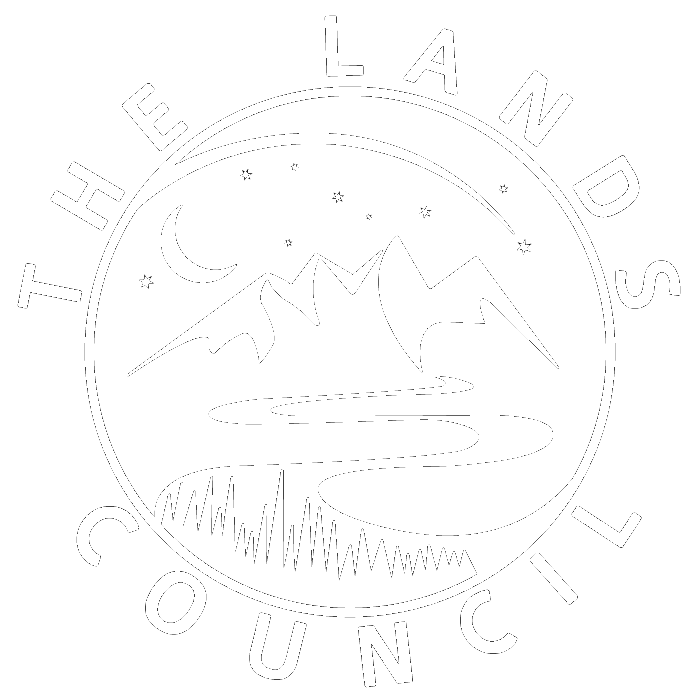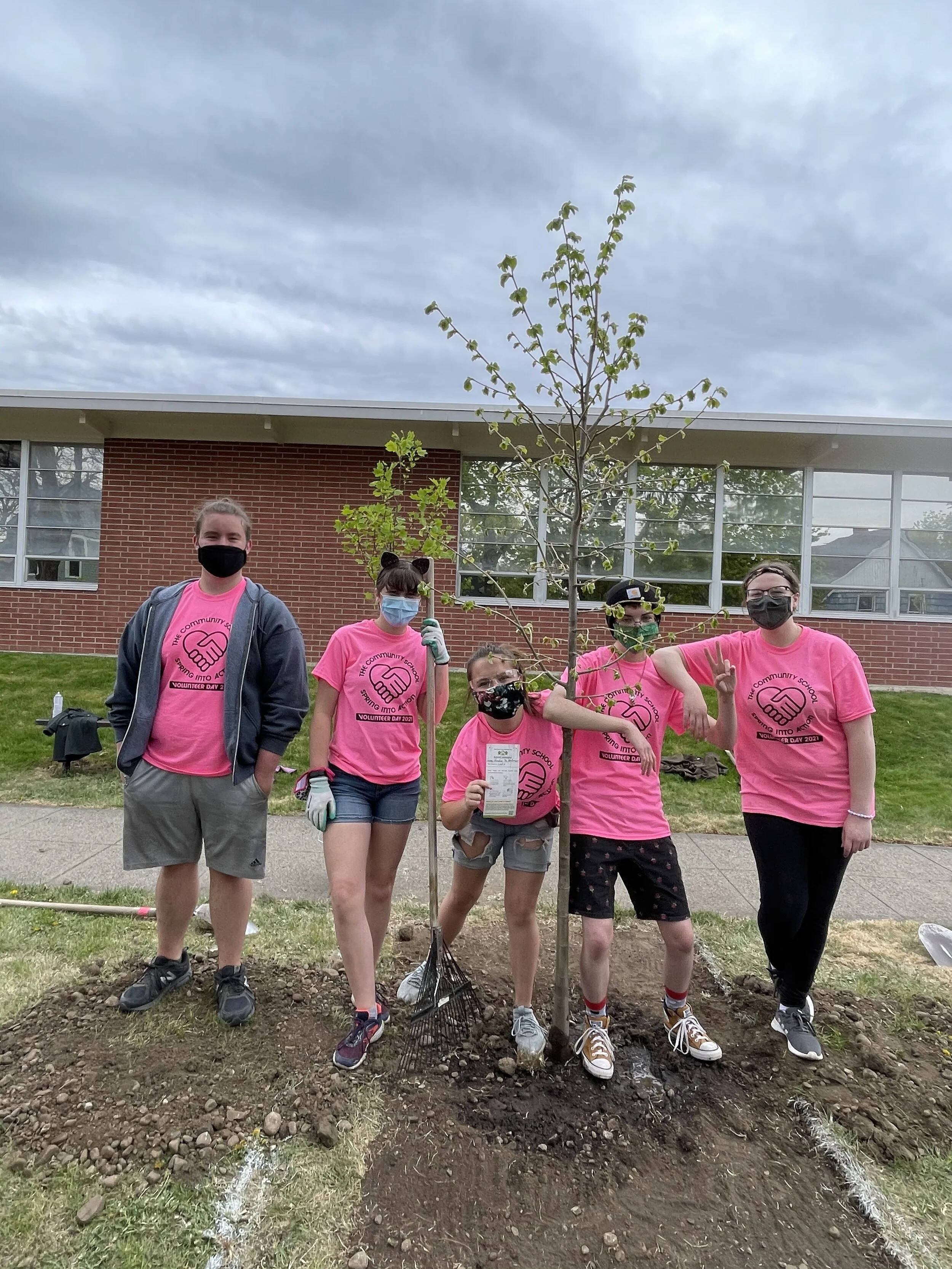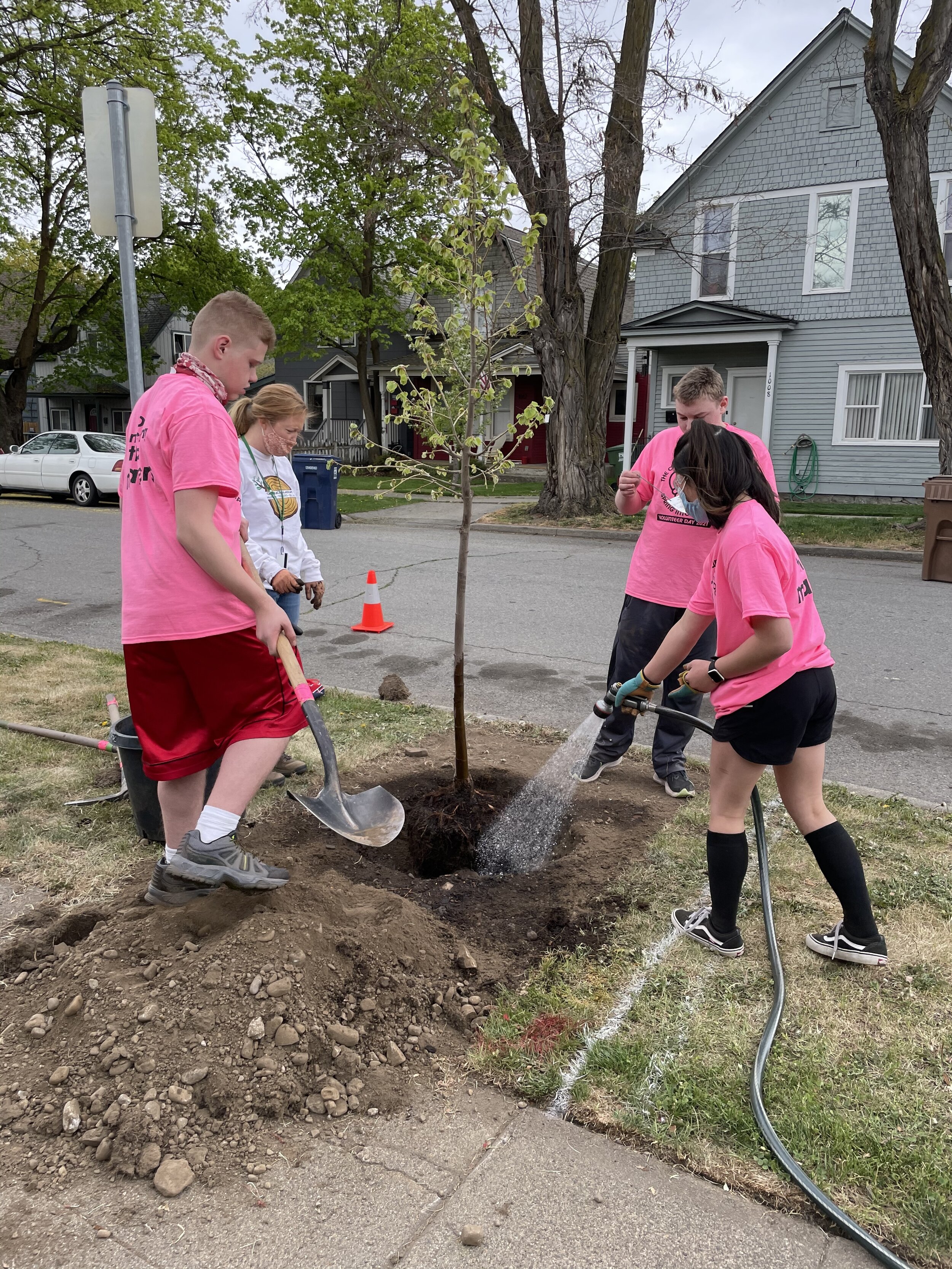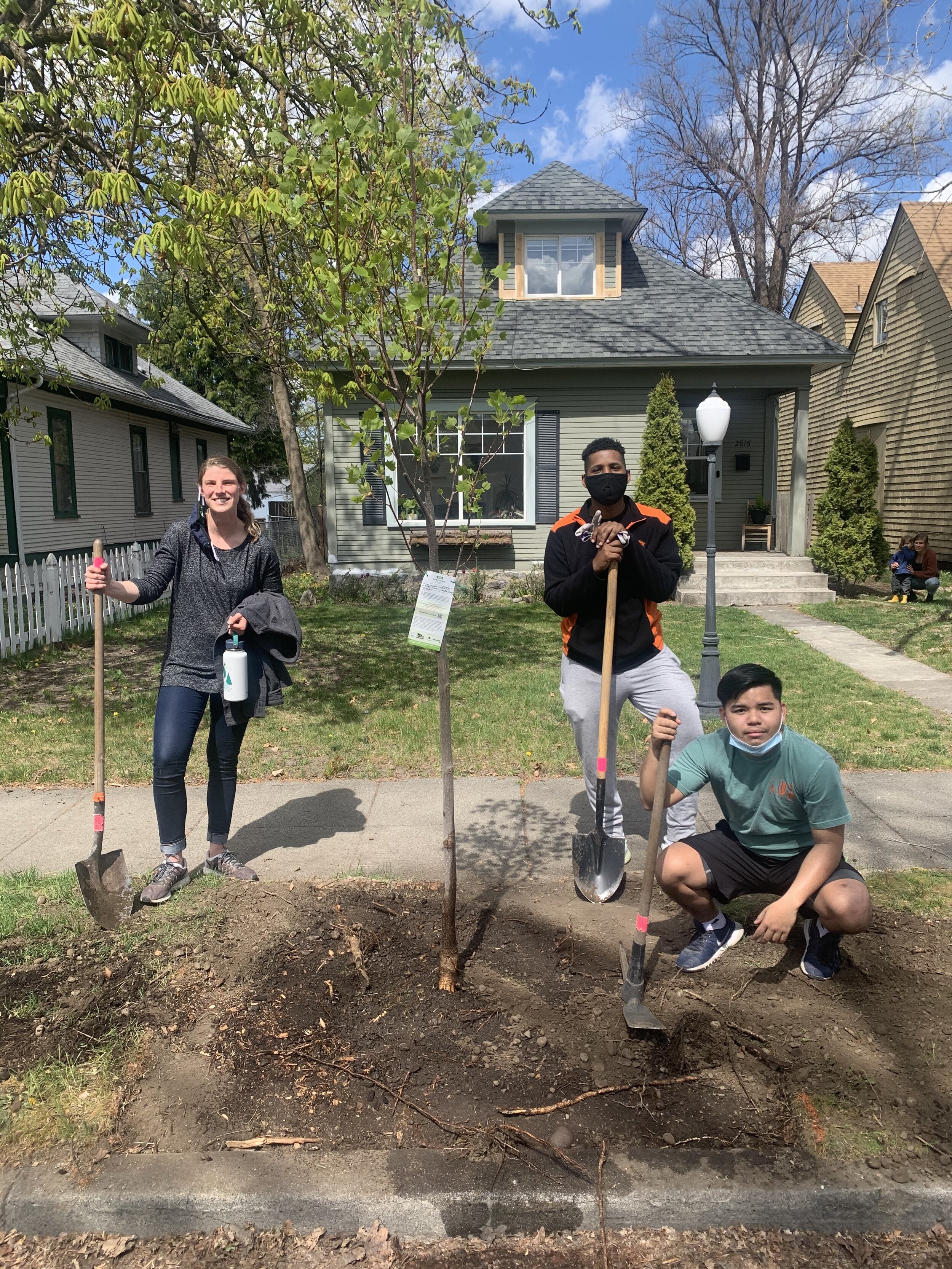By Lindsay Box
Thirty new street trees were planted in the West Central neighborhood on Friday, April 23 and 30th as part of SpoCanopy community tree planting events for Earth Day and Arbor Day.
SpoCanopy’s goal is to increase Spokane's urban canopy by planting free street trees in low-income neighborhoods with low canopy coverage and disproportionate environmental disparities, so that all communities have access to the benefits of street trees and green spaces.
The Lands Council staff and their volunteers conducted extensive outreach throughout the neighborhoods and identified places where trees were needed, and where residents are willing to care for them.
They also partnered with local schools like The Community School, a high school located in West Central. Students combed the streets and parks in West Central cleaning up litter in the neighborhood before the volunteer planting event on the 23rd. They also planted 8 street trees on their school campus too!
Street trees provide a wide variety of benefits such as storm water mitigation, keeping our Spokane River clean, providing habitat for urban wildlife, and increasing property values, providing shade and lowering temperature on the streets and sidewalks and the overall neighborhood temperature, and lowering energy usage in hot months. Trees also help to boost immune systems by reducing area pollution and air-borne particles. Studies have shown that time spent in nature and around trees can even reduce stress.
The SpoCanopy program is growing quickly and with a focus on environmental justice. It is our goal to plant 100 street trees this year, and another 200 next year. We are going to be focusing our planting in Northeast Spokane, in areas that have below average canopy cover. Spokane on average has 20% canopy coverage, with the highest density neighborhoods on the South Hill at almost 40% canopy coverage. Compare that with Northeast Spokane which has 13% on average and the least dense neighborhood at 11% canopy coverage. This demonstrates a clear need to work in these neighborhoods to close that canopy gap. On top of that, Northeast Spokane neighborhoods are some of the most ethnically diverse, and the poorest in the state. The data is clear, Northeast Spokane needs more trees! While there are many ways to combat inequity, The Lands Council, with the partnership and support of Avista, is uniquely suited to make a difference by planting trees and increasing neighborhood canopy.
Thank you to our partners and sponsors that support this program: Avista Utilities, Townshend Winery, The City of Spokane, One Tree Planted, and The City of Spokane Sustainability Action Subcommittee.
“The SpoCanopy program partnership with TLC creates the ability to plant many more trees than we normally have the capacity to. We look forward to continuing efforts together to plant more trees and cultivate relationships with the community. This program also assists in informing citizens about the many benefits trees provide and how they function as green infrastructure assets in the city - mitigating stormwater and protecting the river, filtering the air we breathe, reducing energy costs, creating a pleasant environment and much more.”
“SpoCanopy tree plantings are so much fun. Each event brings the community closer while making it a greener space. It’s always fun to see new faces in the neighborhood get involved.”
“It is so inspiring to see community members come together through a hard day’s work digging and planting for a shared goal of increasing the urban canopy for their neighbors and to improve our environment.”
“The beauty of the SpoCanopy program is that we are planting trees while growing community. By working together with neighbors, volunteers, and community partners we are able to create a greener and healthier environment and greener city.”













